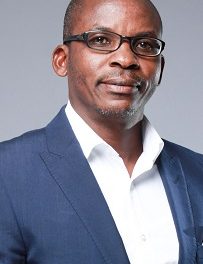
NBC: The fantasy of breaking even
 As a long time admirer of the NBC Director General Albertus Aochamub I have in the past written about my faith in his ability to turn around the fortunes of our national broadcaster.
As a long time admirer of the NBC Director General Albertus Aochamub I have in the past written about my faith in his ability to turn around the fortunes of our national broadcaster.
It is worth mentioning that my faith in Aochamub and his team has not been in vain as he has demonstrated to the hardened doubting Thomases amongst us that, given bold leadership, NBC has the potential to become a beacon of national broadcasters in Africa.
It is an open secret that few people gave the former MTC executive a chance of succeeding when he took over the reins at NBC. Others even suggested that he would not last the distance because of his outspokenness.
But so far the prophets of doom have been proved wrong because the Director General is not only in his third year in charge at NBC but has also made progress in addressing some of the perennial problems at the institution.
When Aochamub was appointed DG, there was no asset register, no audited financial statements dating back three years, and the parastatal had no clue on how it was going to pay the Receiver of Revenue the hundreds of millions of dollars that it owed in the form of VAT and PAYE taxes. In addition, the broadcaster owed its own pension fund several millions due to a lack of proper budgeting and financial forecasting.
Fast forward to 2013, NBC, we are told, has a clear strategy on what it wants to achieve in the short to medium term; it now has a proper asset register; financial statements are being audited when they are due. and a host of other things have changed proving that finally someone who seems to have an idea of what they are supposed to be doing is in charge.
That is progress which should be recognised and celebrated.
But to believe that Aochamub is the latter day Houdini who can, against all odds, escape the realities of leading an institution like NBC and overnight transform it into a commercially viable entity as he tried to tell us last week, is in my humble opinion, pure fantasy.
While the recently released 2012/13 unaudited financials showed that NBC reported a 10% growth in revenue, I was disappointed with the way Aochamub tried to sell the nation a dummy by announcing that the national broadcaster is close to breaking even. During his presentation last week, the NBC DG waxed lyrical about the progress at the public broadcaster leading people to believe that all was now well at NBC.
Aochamub told a spellbound nation that NBC, in true Houdini fashion, had performed one of the biggest financial miracles since Independence as it was only N$2.3 million (which by the way should be N$2.8 million based on the figures given) away from breaking even after years of living in the red.
By painting and selling us this rosy picture of the financial state of the NBC, I feel Aochamub took the nation for granted.
It should be said that no amount of glossing can hide the fact that in the 2012/13 financial year, NBC only managed to generate about 30% of its operational costs. In other words, NBC managed to generate only N$67.9 million revenue against an expenditure of N$225 million.
With the broadcaster struggling to raise its own revenue, the state once again had to bail out NBC with N$154.3 million to fund the day to day running of the institution, an amount N$50 million more than what the state gave NBC in the preceding reporting period.
It is interesting to note that Aochamub has now decided to call this an investment from the shareholder as opposed to the previous years when he called it a subsidy. However, no amount of semantics can camouflage the fact that NBC is an institution that is far from breaking even, and is in need of a major restructuring of its bloated workforce (496 workers) as salaries still take up 68% of total expenditure, something that is clearly unsustainable.
It is worrying that despite dominating the local media landscape, NBC continues to suffer when it comes to advertising revenue and TV licence revenue. Advertising revenue marginally went up by 2% to N$38.5 million while TV licence revenue actually went down 19% compared to the previous year despite an expensive promotional campaign which had to be cut short by four months.
It boggles the mind why an institution that continues to struggle to furnish its debt to the Receiver of Revenue and its own pension fund (more than N$200 million) can be said to be close to breaking even.












































